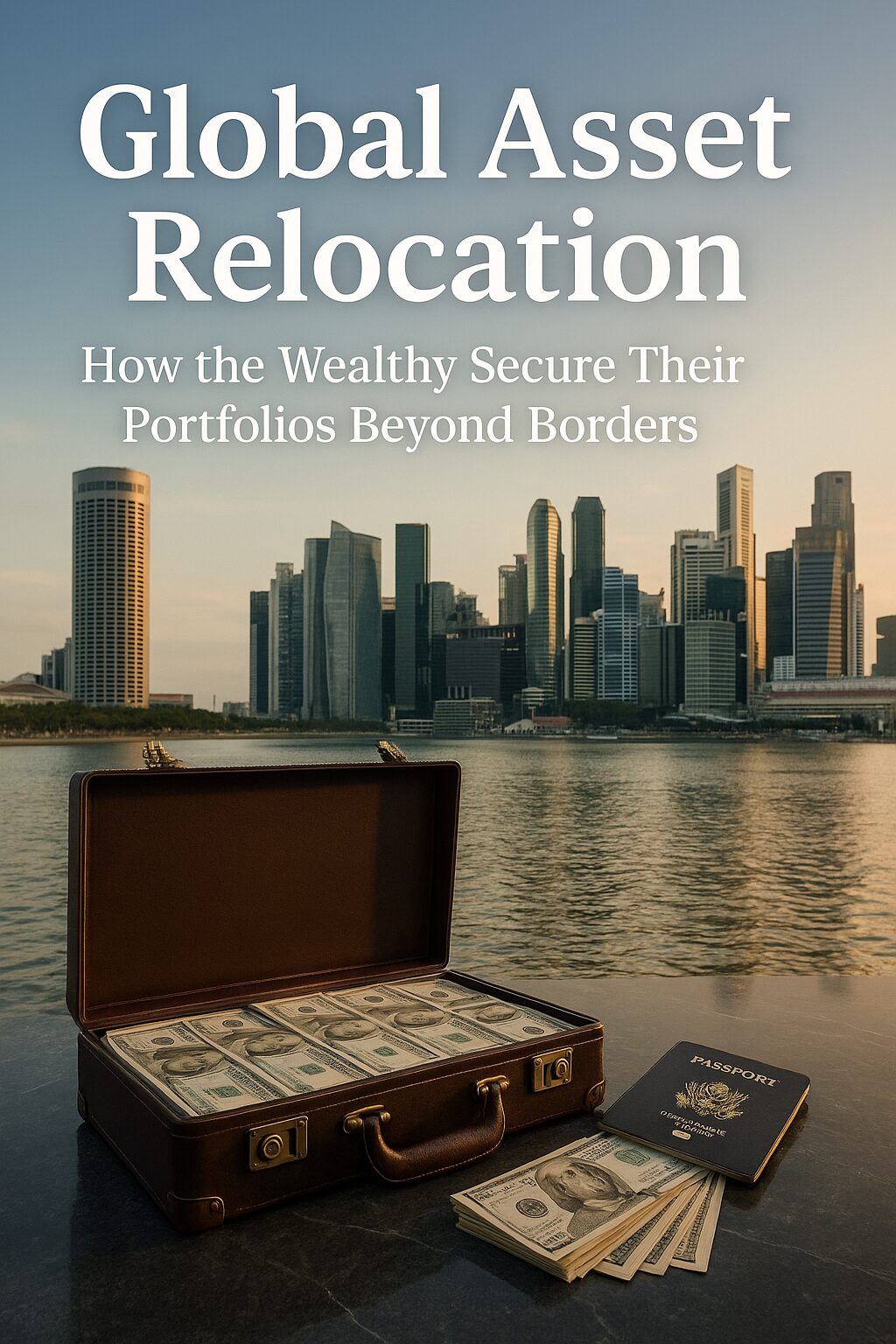The Global Shift in Wealth Management
In an increasingly interconnected world, high-net-worth individuals (HNWIs) no longer confine their wealth to a single country. From tax optimization to asset protection and geopolitical risk management, global asset relocation has become a strategic necessity. The wealthy understand that borders, while political in nature, should not be barriers to financial security and growth. This strategy is not about moving all assets abroad but about intelligently diversifying where those assets are held, ensuring resilience against local economic shocks, currency devaluations, and sudden policy changes.
Why the Wealthy Relocate Assets Internationally
The decision to move wealth beyond one’s home country is rarely impulsive—it’s based on a calculated evaluation of risks and opportunities. Here are the most common drivers:
- Currency Risk Mitigation
Inflation, devaluation, and unstable monetary policies can erode wealth quickly. By holding assets in multiple strong currencies—such as the U.S. dollar, Swiss franc, or Singapore dollar—investors can protect their purchasing power. - Tax Optimization
Strategic relocation of assets can reduce tax burdens legally. This includes capital gains tax planning, inheritance tax minimization, and using jurisdictions with favorable double-taxation treaties. - Political and Regulatory Stability
Wealthy individuals often diversify into countries with predictable legal systems and strong property rights, ensuring that sudden regulatory changes in one jurisdiction won’t jeopardize their entire portfolio. - Access to Global Opportunities
Some investments—such as certain private equity funds, real estate developments, or early-stage tech ventures—are only available to investors who have a presence or account in specific markets.
Key Vehicles for Global Asset Relocation
Relocating assets internationally is not as simple as opening a foreign bank account. It requires structuring assets in ways that are legally compliant yet strategically advantageous.
- Offshore Banking
- Typically in jurisdictions like Switzerland, Singapore, or Luxembourg.
- Provides multi-currency accounts, enhanced privacy, and direct access to global markets.
- International Trusts & Foundations
- Used for estate planning and intergenerational wealth transfer.
- Can shield assets from litigation or politically motivated seizure.
- Global Real Estate
- Properties in prime markets such as London, New York, Dubai, or Sydney serve both as investments and safe havens.
- Real estate often retains value in crises, offering a tangible store of wealth.
- Second Citizenship or Residency Programs
- Golden Visa or citizenship-by-investment programs in countries like Portugal, Malta, or St. Kitts & Nevis.
- These provide greater freedom of movement and alternative tax residencies.
- Offshore Corporate Structures
- Holding companies in stable jurisdictions can help manage global investments and optimize corporate taxation.
Strategic Considerations for Asset Relocation
Relocating wealth across borders requires meticulous planning to avoid pitfalls. The wealthy approach this in a methodical, data-driven way:
- Legal Compliance: Cross-border transactions are heavily regulated. The use of tax treaties, reporting standards like CRS (Common Reporting Standard), and professional advisors ensures compliance.
- Jurisdictional Diversification: Avoid concentrating assets in just two countries; instead, diversify across multiple regions and currencies.
- Liquidity Management: Ensure that part of the portfolio remains liquid in case funds need to be accessed quickly during emergencies.
- Risk Assessment: Monitor geopolitical risks, banking sector health, and currency stability before committing assets.
Case Study – A Diversified International Portfolio
Consider an investor with $50 million in assets:
- 30% Offshore Bank Deposits in Switzerland and Singapore (multi-currency accounts in USD, CHF, and SGD).
- 25% Global Real Estate in London, Dubai, and Sydney.
- 20% International Equities & Private Funds accessed via a Luxembourg-based holding company.
- 15% Trust Assets in Jersey for estate planning and tax optimization.
- 10% Physical Gold & Precious Metals stored in vaults across Zurich and Singapore.
This approach ensures that no single jurisdiction controls the majority of the investor’s wealth, drastically reducing systemic risk.
The Emerging Role of Digital Assets in Global Relocation
The wealthy are increasingly integrating cryptocurrencies and tokenized assets into their relocation strategy. Bitcoin and stablecoins, for instance, can be moved across borders without physical transfer or reliance on banks. When held within regulated digital asset custodians, they combine mobility with legal compliance. Tokenized real estate and blockchain-based funds also allow fractional ownership of high-value properties in different countries, making diversification more accessible.
Long-Term Benefits of Global Asset Relocation
The immediate appeal is safety, but the long-term benefits are equally compelling:
- Sustainable Wealth Preservation across generations.
- Enhanced Investment Returns through access to global markets.
- Reduced Political Exposure to any one government’s policies.
- Greater Lifestyle Flexibility with multiple residences and citizenship options.
Conclusion – Building an Unshakable Financial Fortress
Global asset relocation is not about fleeing a country or avoiding obligations—it’s about building a financial structure that can withstand any economic, political, or market turbulence. The wealthy don’t just think about returns; they think about survival, continuity, and legacy. In an unpredictable world, placing your wealth beyond borders is no longer a luxury—it’s a necessity.
